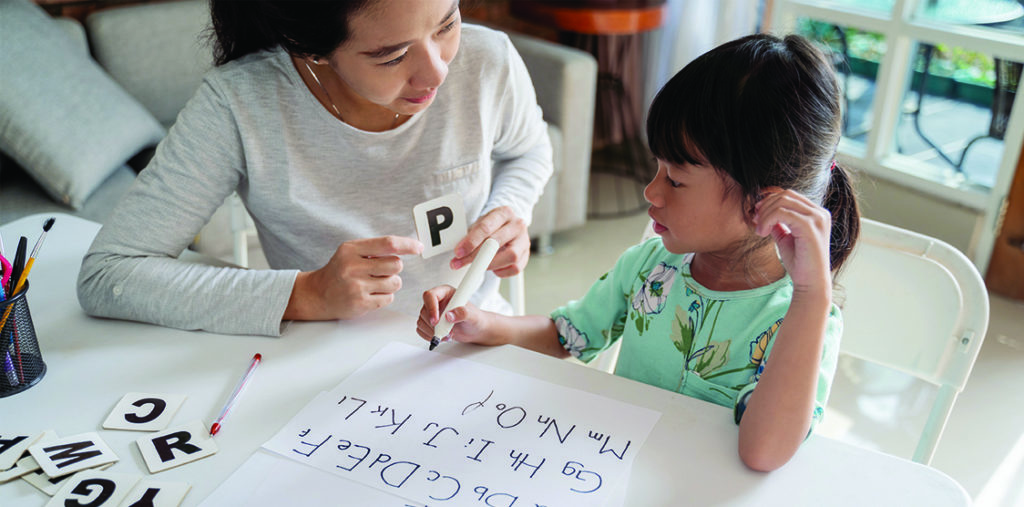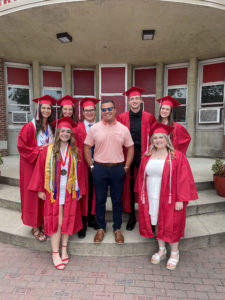Laura McKenna is an education writer based in New Jersey. You can find her here (www.lauramckenna.com). This article was originally published at Laura McKenna’s Substack newsletter.
After years of beating my head against the wall trying to get the public schools to provide academics AND therapy for my twice exceptional child, I gave up. I treated everything that happened at school between 8:30 and 3 as a time where my kid could be around typical kids and get some socializing in, but I did not expect my son to learn much there. His education really started when he got home.
After school, he went to Kumon twice a week for math lessons, to the YMCA for exercise. We maxed out the insurance for speech therapy and psychology services. I networked like crazy to find clubs, groups or activities within a 40 miles radius of the house. I started a Facebook page for other special ed parents in town (almost 600 members now), so I could help facilitate the gossip. We took lessons in his areas of strength, including music and computers. We took trips every weekend to museums or ballfields, anything to get the kid out of the house.
Sandra Lee, the celebrity chef and Andrew Cuomo’s ex-girlfriend, made a fortune providing tips on cooking semi-homemade meals. A typical meal might involve mixing the spice packet from a bag of ramen with hamburger meat and an onion to craft a unique meatloaf. Her formula was to take something off-the-shelf and combine it with something fresh to make something better. Parents have been doing that all year with their schooling – part public, part home, part private – to make something better. Will that continue, post-pandemic?
******************************************************************
Our situation is a little extreme, because my kid has autism, but it’s not that unusual. Families with typical kids have always done a lighter version of semi-homeschooling. Here, they pay a lot of taxes to live in a town based on the school’s reputation, but the vast majority of parents rely on some private services after school to supplement everything from academics to mental health to athletics to college counseling. Does semi-homeschooling exacerbate inequalities? Hell yeah, but you can’t pass a law criminalizing Kumon worksheets, so that’s how things roll.
For the past year and a half, more parents than ever have been semi-homeschooling their kids. Families from Manhattan and Brooklyn relocated to quaint little upstate New York towns, driving up the price of real estate and creating new opportunities for boutique hotels and breweries. This month, we visited two of those towns — Hudson and Roscoe. Until CEOs are able to force workers into the office, those families are staying up there, along with an army of private tutors and online options to support them. Their schools in the city — the besieged elite public schools and hyper-woke private schools — aren’t looking too appealing at the moment.
Like those uber-wealthy rural gentrifiers, many minority parents say that want remote education to continue, too, though for different reasons.
Whenever a polling operation asks parents about their views on school choice, Black and Latino parents were always far, far more sympathetic to charter schools and vouchers than white parents. Why? Advocates in those communities explained to me that their schools are terrible, and they will take any other option out there.
I assume that there is a similar dynamic going on now with remote education. While remote education isn’t great, parents in Newark and Camden and Philadelphia are just happy that their kids aren’t in violent, crazy classrooms. Their kids weren’t learning much in the brick and mortar school either. With remote education, they know their kids are safe and are available to help with caretaking responsibilities.
On our last two trips to upstate New York, we met entrepreneurs creating everything from artisan beef jerky to breweries with vegan burgers to meet the needs of the city families. I wonder if the wealthy families out in their upstate New York retreats will give rise to educational entrepreneurs with new tools and approaches, which will later benefit urban families. I also wonder if special ed kids, like mine, can benefit from change.
Our masks are off, even though it feels really odd to expose our noses and mouths to other people again. It’s like being the American on a topless beach in Ibiza. We’re actually going to the movie theater tomorrow to see Into the Heights. Woot! But the disruption still exists. Lifestyles, locations, work, school are still in flux. I’m feeling more optimistic about these changes lately, because disruption benefits those who have nothing less to lose.





